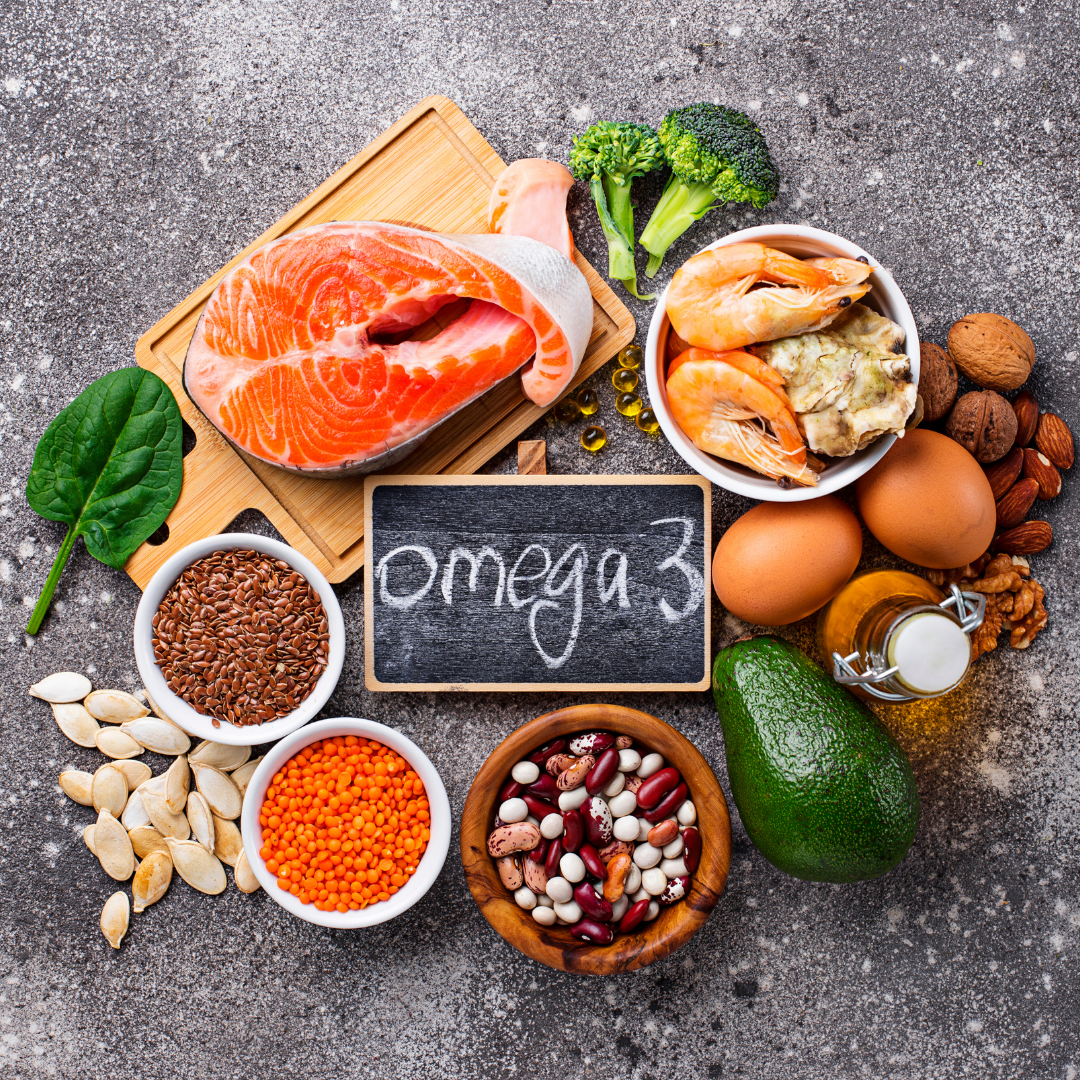Reflecting on my menopause journey, and sharing insights on symptoms, nutrition, exercise, and mental well-being to empower women during Women’s Health Month.
Eight years ago, I shared my thoughts on approaching menopause in a blog post titled “The Chicken and the Egg.” Now, at 56, I’ve journeyed through the phases of menopause and all of its discomforts, revelations, and changes. As we observe Women’s Health Month, I want to offer updated insights, resources, and encouragement to anyone walking this path.
Understanding Menopause
Menopause marks the end of a woman’s reproductive years, officially diagnosed after 12 consecutive months without a menstrual period [1]. Most experience it between ages 45 and 55. For me, I remember noticing some signs when I was 47 years old in 2016, but my 12-month mark came in 2019, exactly one month before my 50th birthday.
Common symptoms as you enter into menopause may include:
- Hot flashes and night sweats – These are sudden feelings of heat, often accompanied by sweating and flushed skin which are caused by hormonal changes, specifically a decrease in estrogen levels [2]. My flashes usually last a few minutes, thank goodness, but I’ve also heard stories from my menopausal friends whose episodes sound unbearable. Treatment options include hormone therapy, non-hormonal medications, and lifestyle adjustments like managing stress and avoiding triggers [3]. Be sure to discuss your concerns and treatment plan with your healthcare provider or OBGYN.
- Sleep disruptions – Because of the above-mentioned symptoms, you could suffer from common sleep issues like insomnia, frequent awakenings at night, and difficulty staying asleep. Even though I’m a Registered Dietitian, I am constantly discussing the importance of sleep with my patients (regardless of what conditions they’re managing), so if you’re noticing regular patterns of disruption in sleep quality and/or quantity, be sure to address them ASAP [4].
- Mood swings and anxiety – While I don’t love the trope of hysterical women, there is something to say about psychological changes that are common during perimenopause. In fact, about 4 in 10 women may notice symptoms similar to premenstrual syndrome (PMS) as they enter into their next chapter of life [5]. Again, the root cause of these swings may be related to hormonal fluctuations [6].
- Vaginal dryness and sexual discomfort – The decreased levels of estrogen during menopause can lead to thinning of vaginal tissues causing reduced lubrication, irritation, burning, and pain during intercourse. It’s no joke that all of this can affect sexual comfort and intimacy [7]. Based on my own personal situation and discussions with close friends, many of the treatment options available—lubricants, moisturizers, and hormone therapy—may or may not alleviate symptoms and improve vaginal health (though I’ve been having some decent effects from this Bonafide product). Aside from communication with your healthcare providers, it’s also helpful to have a supportive partner who is willing to discuss and redefine relationship needs.
- Brain fog and fatigue – I realize that this is dark humor, but I find myself explaining to people when I’m staring off into the distance trying to find a missing word or remember why I walked into a room that it’s “menopause brain” and not early onset dementia. During menopause, some people notice mild memory lapses and difficulty concentrating (compared to dementia symptoms which are more severe and include confusion with time or place) thanks to those pesky hormonal changes [8].
Nourish to Flourish: Nutrition in Midlife
According to the limited studies I’ve found regarding nutrition and menopause, what we eat can either soothe or worsen menopausal symptoms [9]. As usual, there is no one-size-fits-all approach, but the general recommendations of a balanced, varied, and nutrient-dense diet apply here as well. Incorporating fruits and vegetables, whole grains, lean proteins, and omega-3 fatty acids into the majority of your meals can help support hormone balance, stabilize mood, and overall health. Remember that hydration is also key as dehydration can worsen fatigue, hot flashes, and concentration.

I so appreciate the Internet for people who are doing the work and putting together resources to help us ease into our menopausal years. Check out this high protein meal plan along with the below hormone-supporting, symptom-relieving, simple yet healthy recipes to add to your mix this week and in the weeks to come:
- Almond Pancakes (this one is a little more time-intensive)
- Lentil Coconut Curry
- Chicken Lettuce Wraps
- Stuffed Sweet Potatoes
- Marinated Salmon Fillets
- Lush Chocolate Brownies
Move for Mood and Muscle
Regular physical activity supports your heart, brain, metabolism, and bones, all critical areas during and after menopause (and any other time of your life, obvs). Mindful movement can help manage menopausal symptoms and positively impact mental health, reducing stress and improving mood.
As you would with meetings, tasks, and appointments, I always encourage my patients to schedule their fitness into their calendars. Not only can this help you stay committed to prioritizing your physical health, but it can also create a system that allows you to “make the time” versus “find the time” [10].
In my calendar, my weekday mornings are blocked for at-home workouts (FitOn is one of my favorite apps that allows me to select from a variety of types, intensities, and durations) and weekend mornings for more intense training at the gym. Whenever possible, I also carve out time on my schedule to go for a walk outdoors, whether it’s for 15 minutes in between patient sessions or a leisurely stroll during the days when I have a more flexible afternoon to myself.
Every week, check your calendar and include the following (with medical clearance):
- Strength training (2x/week)
- Weight-bearing aerobic exercises (walking, dancing)
- Stretching and balance (yoga or Pilates)
While I find that most women focus on cardiorespiratory exercises, it’s important to prioritize weight-bearing exercises during menopause [11]. As our age increases, our estrogen decreases which can cause bone mass loss, resulting in osteoporosis. Our muscle mass also starts to deteriorate as we get older. Strength training increases muscle strength and bone density and helps us maintain our balance and flexibility, reducing the risk of falls and fractures later in life.
If you’re more into gentle movement, managing an injury, or have mobility limitations, check out our fitness post here for alternate ways to move.
Learn more about menopause, muscle-building, and metabolism from Nicole Ibarra, RD, a nationally recognized dietitian, media spokesperson, author, and founder of Altitude Nutrition & Fitness.
References
- National Institute on Aging. (2021). What is menopause? National Institute on Aging; National Institute of Health. https://www.nia.nih.gov/health/menopause/what-menopause
- Hot flashes – symptoms and causes. (2023, December 12). Mayo Clinic. https://www.mayoclinic.org/diseases-conditions/hot-flashes/symptoms-causes/syc-20352790
- Harper-Harrison, G., Shanahan, M. M., & Carlson, K. (2023, February 20). Hormone Replacement Therapy. National Library of Medicine; StatPearls Publishing. https://www.ncbi.nlm.nih.gov/books/NBK493191/
- Sleep Problems and Menopause: What Can I Do? (2021, September 30). National Institute on Aging. https://www.nia.nih.gov/health/menopause/sleep-problems-and-menopause-what-can-i-do
- Perimenopause Rage: Signs, Hormonal Causes, Treatment, and More. (n.d.). Healthline. https://www.healthline.com/health/menopause/perimenopause-rage
- Silver, N. (2023, April). Mood Changes During Perimenopause Are Real. Here’s What to Know. Www.acog.org. https://www.acog.org/womens-health/experts-and-stories/the-latest/mood-changes-during-perimenopause-are-real-heres-what-to-know
- Abraham, C. (2020, October). Experiencing Vaginal Dryness? Here’s What You Need to Know. Www.acog.org. https://www.acog.org/womens-health/experts-and-stories/the-latest/experiencing-vaginal-dryness-heres-what-you-need-to-know
- Minding Your Memory at Menopause. (2023, May). Ncoa.org. https://www.ncoa.org/article/how-to-handle-menopause-brain-fog/
- Erdélyi, A., Pálfi, E., Tűű, L., Nas, K., Szűcs, Z., Török, M., Jakab, A., & Várbíró, S. (2024). The Importance of Nutrition in Menopause and Perimenopause—A Review. Nutrients, 16(1), 27. https://doi.org/10.3390/nu16010027
- Scheduling Your Workouts And Why It Leads To Success. (2018, September 13). Aaptiv. https://aaptiv.com/magazine/scheduling-workouts/
- Capel-Alcaraz, A. M., García-López, H., Castro-Sánchez, A. M., Fernández-Sánchez, M., & Lara-Palomo, I. C. (2023). The Efficacy of Strength Exercises for Reducing the Symptoms of Menopause: A Systematic Review. Journal of Clinical Medicine, 12(2), 548. https://doi.org/10.3390/jcm12020548



0 Comments